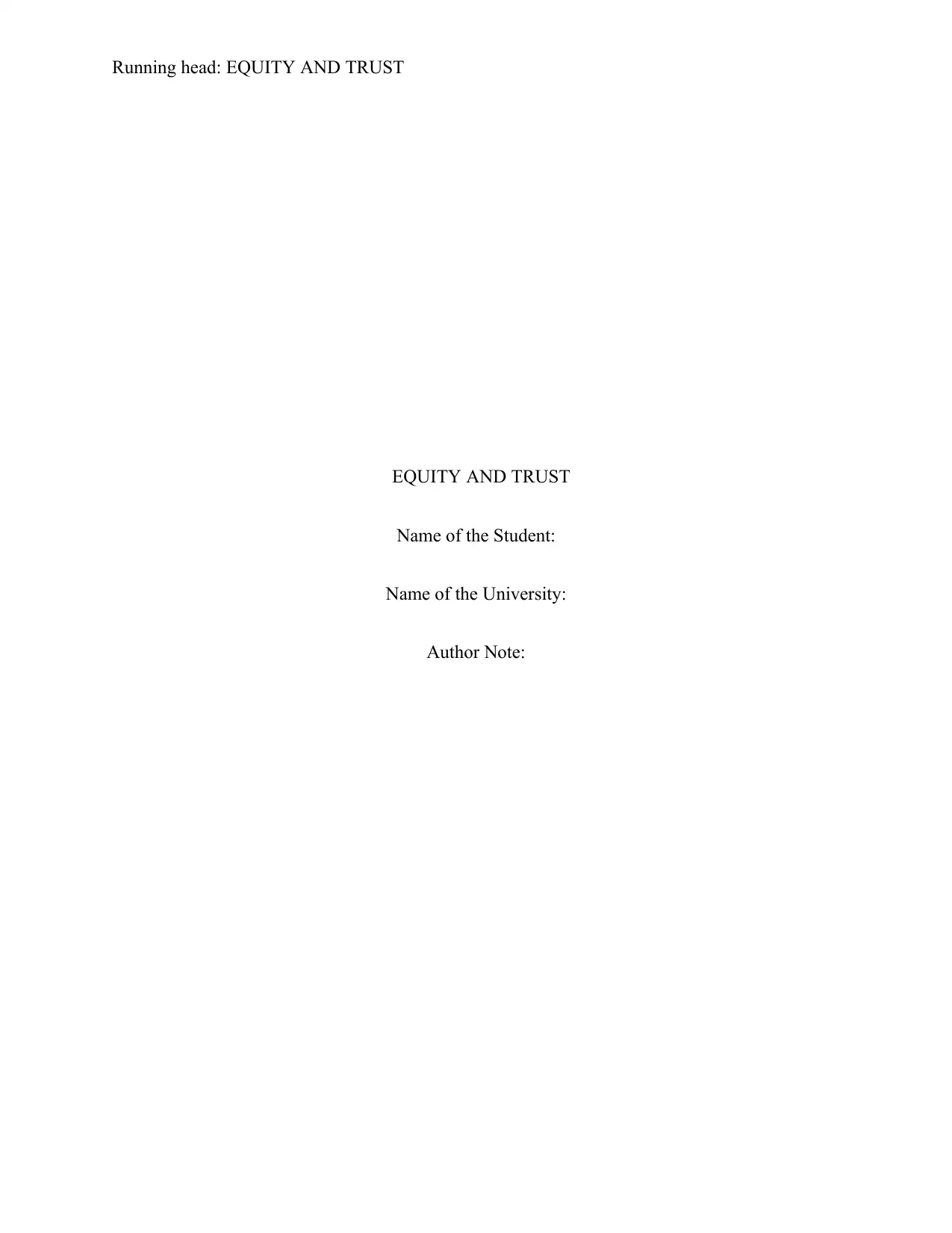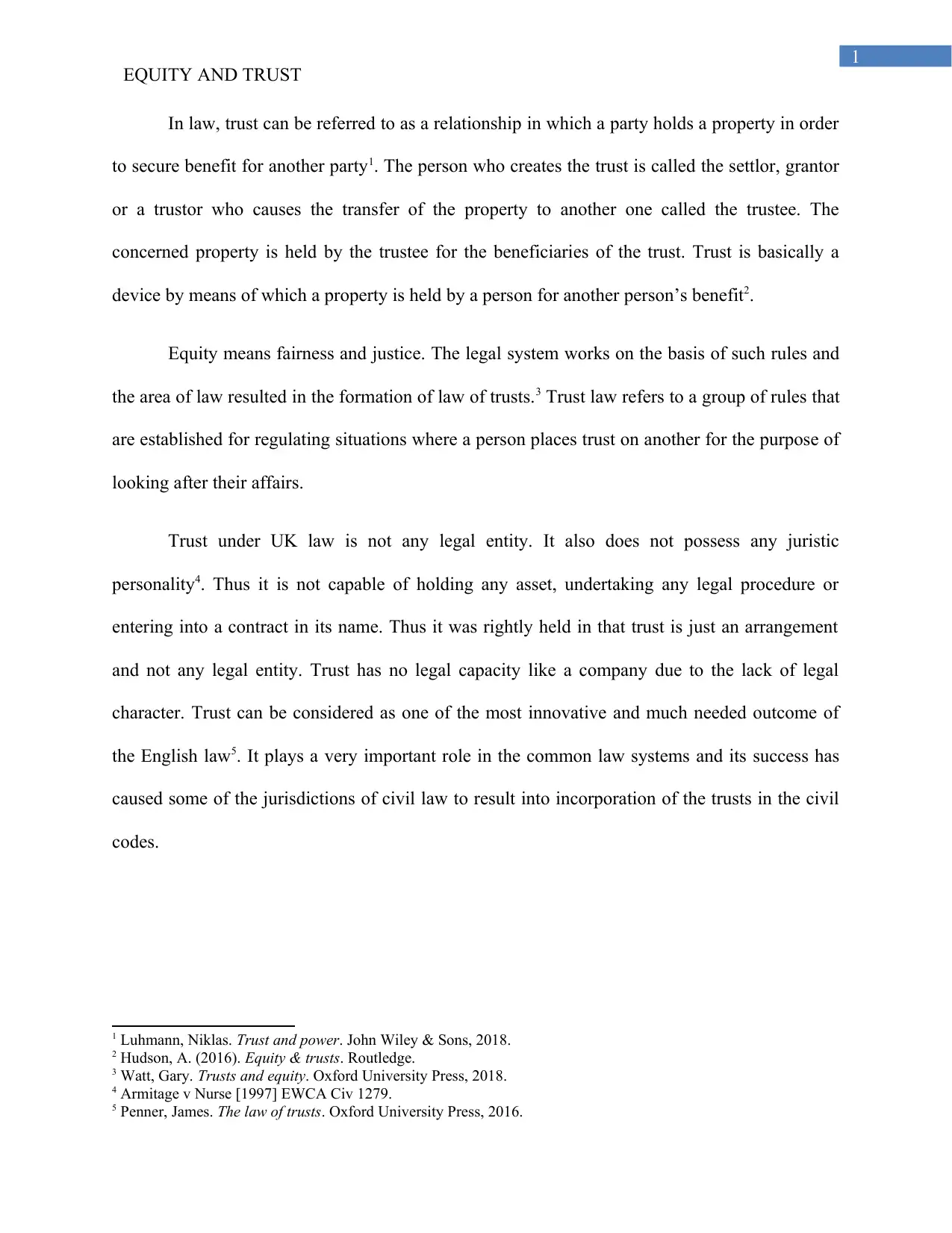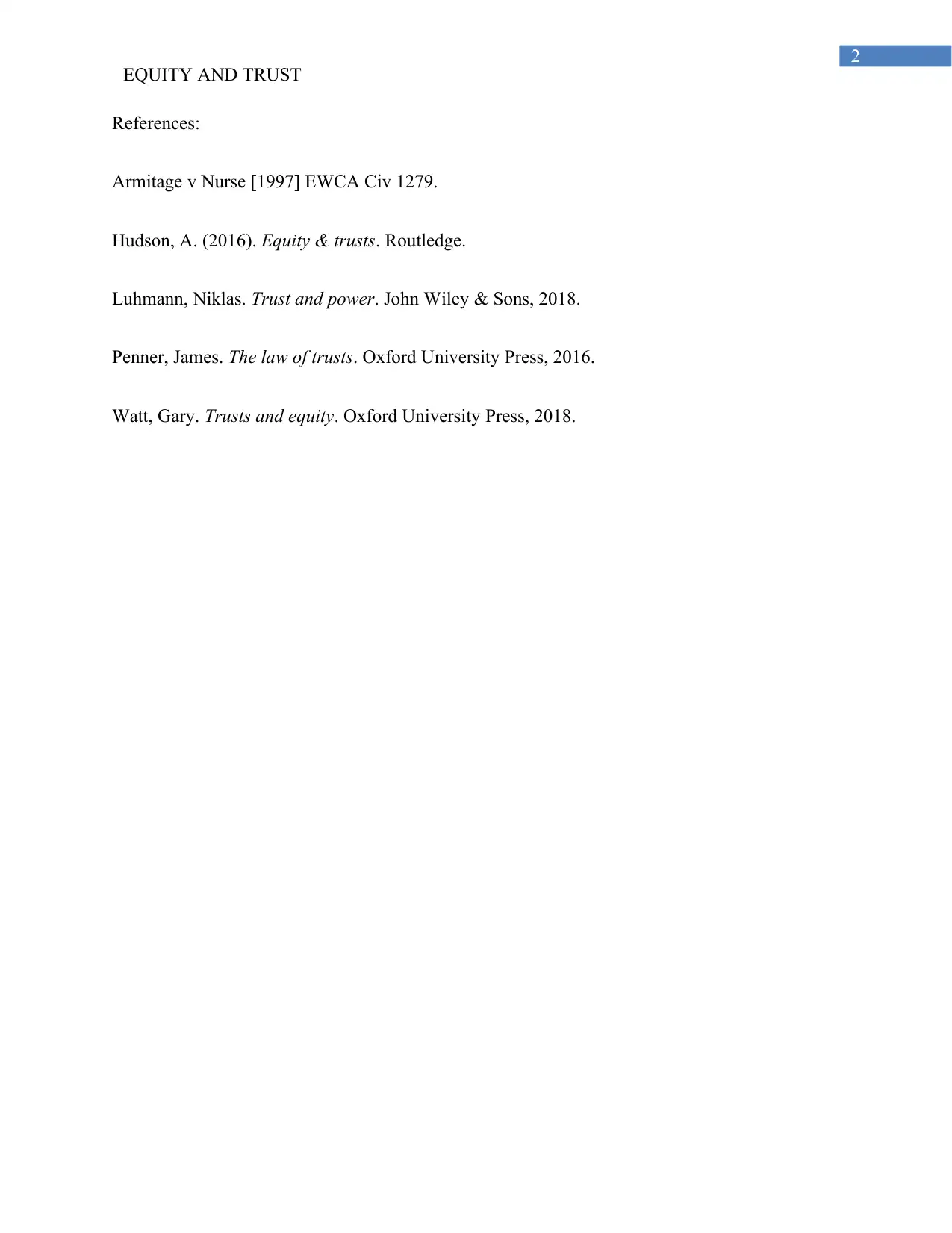Equity and Trusts: Legal and Equitable Relationships Report
VerifiedAdded on 2022/09/18
|3
|384
|23
Report
AI Summary
This report examines the legal and equitable relationships within the context of trusts. It begins by defining a trust as an arrangement where a trustee holds property for the benefit of a beneficiary, highlighting that a trust itself is not a legal entity under UK law. The report emphasizes the importance of equity, which ensures fairness and justice in the legal system, particularly in trust law. Key aspects discussed include the roles of the settlor, trustee, and beneficiary, and the legal principles governing their interactions. The report references various sources including case laws like Armitage v Nurse, and texts by Hudson, Luhmann, Penner, and Watt to support its analysis. Overall, the report provides an overview of the core components of trust law and its application within the UK legal system.
1 out of 3










![[object Object]](/_next/static/media/star-bottom.7253800d.svg)